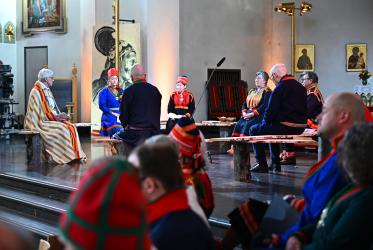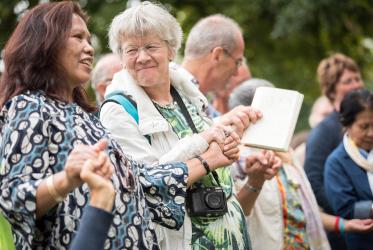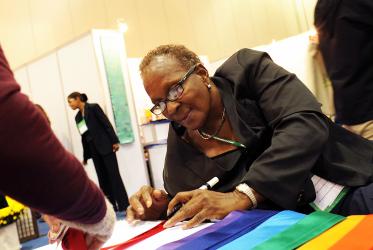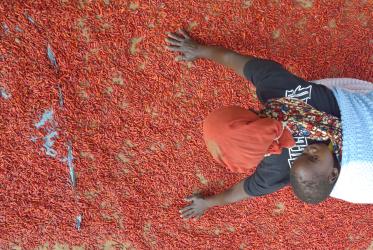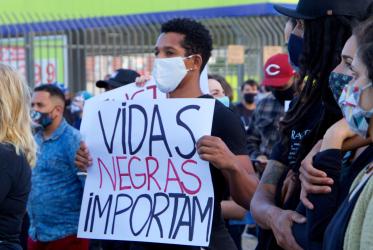Displaying 1 - 20 of 121
HIV and AIDS Civil Society Networks and the Faith Sector
Lessons Learnt from Strategic Engagement in India, Dominican Republic, Indonesia, and Jamaica
31 January 2023
Church of Sweden apologizes to Sámi people, this time in Sápmi
27 October 2022
Promoting human dignity through art
06 September 2022
Called to Transformation - Ecumenical Diakonia
09 June 2022
WCC pre-Assembly consultation on Overcoming Racism, Racial Discrimination and Xenophobia
06 - 10 December 2021
Geneva, Switzerland





